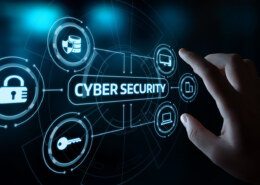Today, businesses and individuals face several critical cybersecurity threats, including: 1. Phishing Attacks: These involve fraudulent emails or messages to steal sensitive information. Mitigation involves employee training, email filtering, and multi-factor authentication (MFA). 2. Ransomware: MalRead more
Today, businesses and individuals face several critical cybersecurity threats, including:
1. Phishing Attacks: These involve fraudulent emails or messages to steal sensitive information. Mitigation involves employee training, email filtering, and multi-factor authentication (MFA).
2. Ransomware: Malicious software encrypts data, demanding ransom for its release. Regular data backups, up-to-date antivirus software, and employee awareness can mitigate this threat.
3. Data Breaches: Unauthorized access to sensitive data can have severe consequences. Strong encryption, regular security audits, and strict access controls are essential preventive measures.
4. Insider Threats: Employees or contractors may intentionally or unintentionally compromise security. Implementing user behavior analytics, access controls, and regular monitoring can help detect and prevent insider threats.
5. Distributed Denial of Service (DDoS) Attacks: These overload systems with traffic, causing downtime. Using DDoS protection services and network monitoring tools can mitigate these attacks.
To effectively counter these threats, businesses and individuals must adopt a comprehensive cybersecurity strategy that includes employee training, regular system updates, strong authentication methods, and continuous monitoring.
See less

Becoming an ethical hacker involves a structured approach to developing skills, gaining knowledge, and adhering to ethical guidelines. Here’s a concise roadmap highlighting the important points: Education and Knowledge: Formal Education: Obtain a degree in computer science, cybersecurity, or a relatRead more
Becoming an ethical hacker involves a structured approach to developing skills, gaining knowledge, and adhering to ethical guidelines. Here’s a concise roadmap highlighting the important points:
Education and Knowledge:
Skills Development:
Ethical Guidelines:
Practical Experience:
In summary, becoming an ethical hacker requires a blend of formal education, skill development, adherence to ethical guidelines, and practical experience.
See less